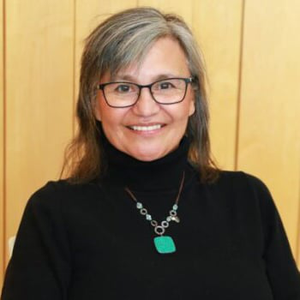
Valerie Arnault-Pelletier
Senior Lead, Indigenous Initiatives and Programming at University of SaskatchewanVal is a nehiyaw iskwew who situates herself from her mother’s community of Waterhen Lake Cree Nation, and her grandmother’s community of Beardy’s and Okemasis First Nation. She has worked at U of S Nursing and Medicine for 29+ years.
Val has a passion for working with First Nations and Metis students, families and communities. She plays a strong role in advocacy, providing personal, social, and cultural supports for students in the College and beyond. She sits on several University of Saskatchewan committees including the Indigenous Advisory Circle, Indigenous Health Committee and the Health Sciences Indigenous Space and Visual Symbols Committee.
She is also a strong proponent for First Nations and Metis cultural knowledge and inclusive of role models, Knowledge Keepers, and Cultural Advisors in her work. She is passionate about community issues and over the years has dedicated her time to the missing and murdered Indigenous women and girls, the Oskayak Daycare School Board, kidney transplant fundraising, and other community-based initiatives.
She has a Metis husband, two adult children and a wee dog named Maggie.
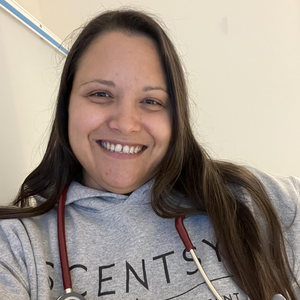
Dr. Ashley Blais
Rural Family DoctorEarly Morning Song Woman (Weba Kiesap Nawgamo Pinashi Igwe) is her traditional name. Given the name Ashley by her parents, she is a proud Métis woman with ancestral roots in Sainte Laurent and St. Boniface, Manitoba.
Ashley is married and a mother to three beautiful daughters. In addition, her family has welcomed her nephew into their home over the past year.
For the past 12 years, she has been dedicated to serving as a rural family doctor, providing care through emergency room and hospitalist duties, as well as running clinics in Ste. Rose Du Lac and Ebb and Flow First Nation, Manitoba.
She resides and works on Treaty 2 territory, the original lands of the Anishinaabe, Cree, Oji-Cree, Dakota, and Dene peoples, as well as the homeland of the Métis Nation.
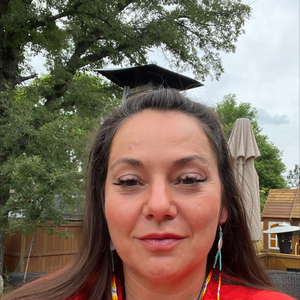
Dr. Mandy Buss
Indigenous Health Lead & Director of Indigenous Health Longitudinal Curriculum for Undergraduate Medical Education, Faculty of Medicine at University of ManitobaAaniin Boozhoo, Dr. Mandy Buss is Métis from the Red River Settlement in Manitoba, Canada. She is the mother of an amazing 8 year old son.
Mandy is a Family physician working in a resident teaching clinic that services northern transient patients, and marginalized community in the inner city of Winnipeg. She is the Indigenous Health Lead for the Faculty of Family Medicine and the Director of Indigenous Health Longitudinal Curriculum for the Undergrad Medical Education, Faculty of Medicine at the University of Manitoba.
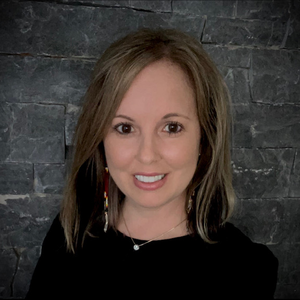
Dr. Paula Cashin-Kennedy
Radiologist and Nuclear Medicine Physician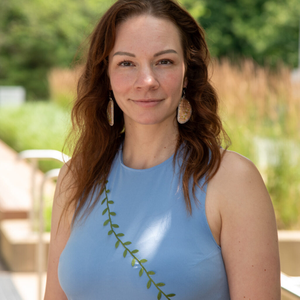
Dr. Jamaica Cass
Indigenous Health Lead at Toronto Metropolitan University, School of Medicine and IPAC SecretaryAs a member of the Mohawks of the Bay of Quinte, Turtle Clan, Dr. Cass practices Indigenous Health as a primary care physician at Tyendinaga Mohawk Territory. She also has a focused practice in Obesity Medicine, for which she is board-certified. Through her community-focused practice, Dr. Cass advocates to reduce gaps in services and address inequities in care for Indigenous patients. Her current efforts are concentrated on addressing inequitable access to medication.
At Queen’s University, Dr. Cass serves as an Assistant Professor in the Department of Family Medicine, where she is the Program Director for the Indigenous Health Enhanced Skills Program and the Director of Indigenous Health. In 2024, she was recognized with the Principal’s Teaching and Learning Award for Indigenous Education at Queen’s.
Dr. Cass is deeply involved in shaping medical education. She contributes to policy development, community engagement, admissions, and curriculum design at the Toronto Metropolitan University School of Medicine. She is committed to creating pathways for Indigenous learners and fostering safe, inclusive spaces for Indigenous patients.
Dr. Cass holds a Medical Doctorate from Tulane University and completed her family medicine residency at the University of Calgary. She also has a PhD in breast cancer molecular biology from Queen’s University, where she received recognition through various institutional and international awards.
Throughout her academic and professional journey, Dr. Cass has been actively involved in Indigenous mentorship and advocacy. She dedicates her time to supporting Indigenous learners and ensuring culturally safe healthcare for Indigenous communities.
In her personal life, Dr. Cass enjoys creating beadwork and has recently begun designing textiles with Indigenous themes. She is a mother, wife, auntie, and daughter, residing on the traditional territories of the Haudenosaunee and Anishinaabe.
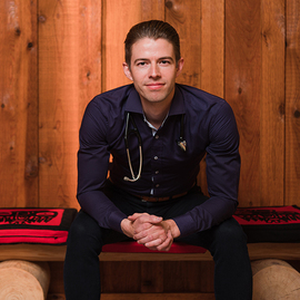
Dr. Michael Dumont
Medical Director- Lu'ma Medical CentreBozhoo, my name is Michael Dumont. I am Anishinaabe (Marten Clan), a member of Shawanaga First Nation and I also carry mixed European ancestry. I am honoured to live as a guest on the unceded land of the Musqueam, Squamish and Tsleil-Waututh peoples, where I raise my 4yo daughter Evie.
As a family physician, I am privileged to work both on and off reserve in community primary care. I helped to establish Lu'ma Medical Centre in 2016, where I currently serve as Medical Director. We incorporate traditional Indigenous and Western medical approaches in our two-eyed seeing model of care, with Elders and Traditional Healers working alongside Indigenous physicians, nurses, counselors and social navigators. We are a core learning site for the Indigenous Family Medicine Residency program at UBC, where I also do some teaching with the undergraduate and postgraduate medical programs. I am proud to partner with Musqueam First Nation to deliver primary care on-reserve, and I currently serve as spokesperson for the First Nations and Aboriginal Primary Care Network (a partnership of 8 Indigenous owned/operated clinics across Metro Vancouver).
A member of IPAC since 2016, I currently serve as Vice President on our Board of Directors, and Chair the Working Group on Physician Wellness and Joy in Work for the National Consortium on Indigenous Medical Education.
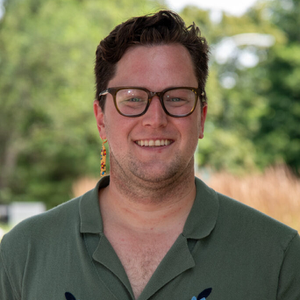
Dr. Ryan Giroux
General Paediatrician and IPAC Physician DirectorRyan is a proud member of the Métis Nation of Alberta. His paternal family is Métis with roots in Fort Chipweyan, Alberta, and he has mixed European heritage on his Mom’s side. He grew up on Treaty 6 and 8 land in Athabasca, Alberta, and now resides in Toronto where he works as General Paediatrician.
He works primarily with urban Indigenous families and refugee/newcomer families at St. Michael’s Hospital and the Inner City Health Associates. Ryan is an Indigenous Educator at the Royal College of Physicians and Surgeons of Canada, is the Temerty Faculty of Medicine’s PGME Indigenous Health Lead, and is the Co-Chair of the First Nations, Inuit, and Métis Health Committee for the Canadian Paediatric Society.
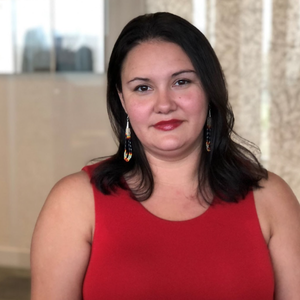
Dr. Santanna Hernandez
Dr. Santanna Hernandez is Dene, from the Liidlii Kue Nation and Cold Lake First Nation on her father’s side and Dutch on her maternal side. She was raised on the traditional territory of the Sto:lo Nation and spent many years as a guest on the unceded territory of the Sinixt (Lakes), Syilx (Okanagan), Ktunaxa and Secwepemc (Shuswap) nations, whom she honours for the many traditions and gifts they shared with her. Dr. Hernandez is a mother of four children and a member of the Canadian Armed Forces, and she is working on her own healing journey from post-generational trauma and ongoing systemic racism.
She recently completed her medical education at the University of Calgary and will be continuing her training in southern Alberta in rural family medicine. She served as the first Indigenous president of the Canadian Federation of Medical Students and continues to support the federation in the position of past president. She serves as co-chair on the ii'taa'poh'to'p student advisory circle and is continually working on research and initiatives to support Indigenous students at the university.
Dr. Hernandez uses her leadership and governance experience to walk a parallel path with allies. Before attending medical school, she completed a bachelor of Indigenous social work degree at the University of Victoria with a focus on Indigenous health and health policy.
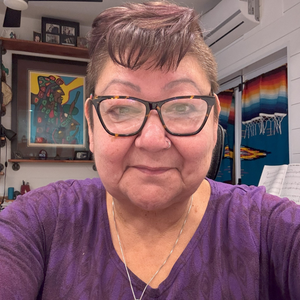
Dr. Karenna’onwe Hill
Grass Roots Indigenous Physician and Assistant Professor, Indigenous Health Lead at McMaster UniversityKarenna’onwe (Gaw-law-naw-oo-way)– Dr. Karen Hill is a Mohawk woman and practicing physician from Six Nations of the Grand River Territory. She is a Daughter, Sister, Mother Auntie, and Grandmother. She completed medical school in 2003 and Family Medicine Residency in 2005 - both from McMaster University. Her passion is to see Traditional Indigenous Knowledge return to the centre of life and healthcare for Indigenous people across Canada. This vision led her to co-create a collaborative practice with Traditional Medicine Practitioners at Six Nations called "Juddah's Place".
In 2015 Karen became the first recipient of the Thomas Dignan award for Indigenous Health conferred by the Royal College of Physicians and Surgeons. In the same year she also received The College of Family Physicians Excellence Award for leading the way in Indigenous collaborative care in primary practice. Also, in 2016 she was honored by McMaster University with a Community Impact Award.
Karen continues to practice consultative medicine at Six Nations and is the Clinical Lead for the Indigenous Medicine Service at the Brantford General Hospital. Karen is an Assistant Professor and Faculty Lead for Indigenous Health with the Department of Family Medicine at McMaster University. She has completed 4 years apprenticeship in Traditional Indigenous Medicine and continues this learning along with Mohawk language classes as lifelong commitments.
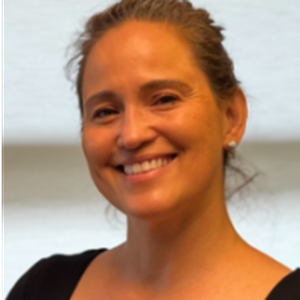
Dr. Ojistoh Horn
Family Physician at Akwesasne Medical Clinic and IPAC PresidentDr. Ojistoh Horn is Kanienkeha:ka (Mohawk) is from Kahnawake where she lives with her family. Her father is from Akwesasne, where she currently works. She is a family physician taking care of her people through all stages of the lifecycle. Supervising medical students and family medicine residents during their rural rotations in Akwesasne, she emphasizes the complexities of providing primary care to Indigenous peoples and their communities.
Drawing on both Western and Traditional paradigms, working with like- minded physicians across the country, with a focus on the effects of the environment and pollution on health, she promotes the inclusion and support of traditional knowledge and ‘ways of being’ into a framework for providing wholistic and primary care to her people.
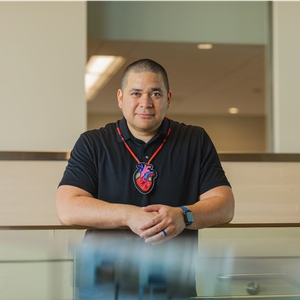
Dr. Alika Lafontaine
Past President at Canadian Medical AssociationDr. Alika Lafontaine is an award-winning physician, social innovator, and the first Indigenous physician listed by the Medical Post as one of Canada’s 50 Most Powerful Doctors. Grounded in a mixed Indigenous ancestry of Metis, Oji-Cree and Pacific Islander, Dr. Lafontaine has served in provincial and national medical leadership positions for almost two decades.
From 2013-2017 he co-led the Indigenous Health Alliance, one of the most ambitious Indigenous health transformation projects in Canadian history. At its peak, it represented more than 150 First Nations and successfully advocated for $68 million in funding for health transformation across their traditional territories.
In summer 2022, Dr. Lafontaine became the first Indigenous doctor and youngest physician to lead the Canadian Medical Association in its 156-year history. In his presidency year (summer 2022-2023), the CMA successfully advocated for the largest Federal investment in healthcare since 2004 as well as achieving breakthroughs in decades old issues like pan-Canadian licensure, health data sharing and health human resource planning.
Dr. Lafontaine is a Canada’s top 40 under 40 recipient, Maclean’s top Health Care Innovator, and the youngest recipient of an Indspire award. He continues to write and speak frequently on the politics of healthcare, implementing and scaling equity, redesigning health systems, and effective advocacy.
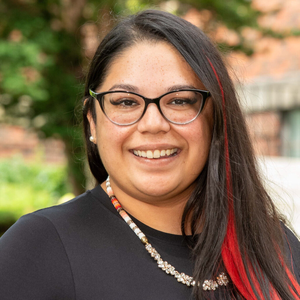
Dr. Alexa Lesperance
Family Physician and IPAC Vice PresidentDr. Alexa Lesperance, Masaabikwe, is an Anishinaabe kwe of the Bear Clan. She originates from Rocky Bay First Nation in the Robinson-Superior Treaty area and Whitefish Bay First Nation in Treaty #3 territory. Currently residing in Thunder Bay, Ontario, Dr. Lesperance practices as a family physician in a variety of clinic-based settings.
Her journey in medicine has been both challenging and rewarding. Dr. Lesperance credits her success to the guidance, mentorship, and support of Indigenous physicians who have inspired and empowered her along the way. She reflects on the transformative power of representation, emphasizing the importance of seeing oneself reflected in the medical profession.
As a proud member of the IPAC board, Dr. Lesperance is deeply committed to strengthening IPAC’s capacity for mentorship, fostering connection, and uplifting the Indigenous medical community. She envisions a future where Indigenous physicians and learners not only survive but thrive, honouring the hopes and dreams of their ancestors.
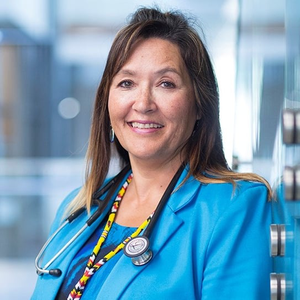
Dr. Veronica McKinney
Family Physician at Northern Medical Services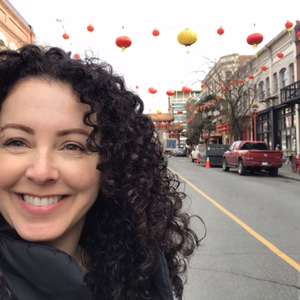
Melanie Osmack
Executive Director of Indigenous Physicians Association of CanadaRoger Pelletier
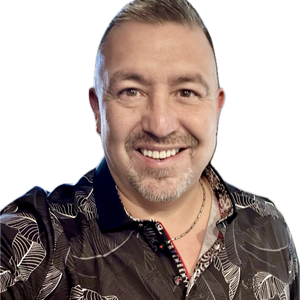
Dr. Don Wilson
Dr. Don Wilson is a member of the Heiltsuk Nation with ancestral ties to the Haisla and Kitasoo-Xaixais Nations. He was born and raised in Bella Bella, BC, the home of the Heiltsuk people. He also has Irish settler ancestry on his maternal side. He has been practicing general Obstetrics and Gynecology since 2006, and currently lives and works as a locum tenens primarily in the unceded traditional territory of the K’omoks Nation on Vancouver Island. Dr. Wilson’s professional interests include Indigenous Health, International Women’s Health, LGBTQ+ health, and metabolic health with a focus on lifestyle and nutrition. Dr. Wilson has 4 adult children and 3 grandchildren who are the light of his life.
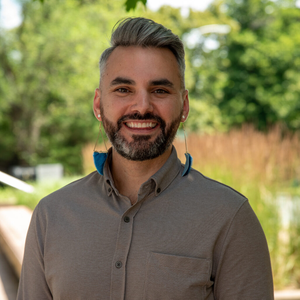
Dr. Brent Young
Family Physician, Academic Director for Indigenous Health at Dalhousie University and IPAC TreasurerDr. Brent Young is Anishinaabe and a member of Sandy Bay First Nation. His mother is a Sixties Scoop Survivor, and his grandmother was a survivor of Sandy Bay Indian Residential School. He was born and raised in Unama’ki.
He is a family physician at Sipekne’katik Health Centre, academic director for Indigenous health at Dalhousie Medical School, and founding clinical lead of Wije’winen Health Centre. He played a key role in supporting the Mi’kmaw Native Friendship Centre in establishing this multidisciplinary primary care service for the urban Indigenous community of Halifax in 2022.
Through his leadership, Dalhousie Medical School has seen a substantial increase in the number of Indigenous medical students being admitted through a new Indigenous Admissions Pathway. This pathway is poised to become a key driver of the Indigenous physician workforce in the region and across Canada.
He has also contributed to several national efforts to advance Indigenous health, notably as co-chair of the Anti-Racism Work Group with the National Consortium of Indigenous Medical Education and as a member of the Indigenous Health Committee with the Canadian College of Family Physicians. His primary area of interest is dismantling anti-Indigenous racism in healthcare systems using strengths-based frameworks.
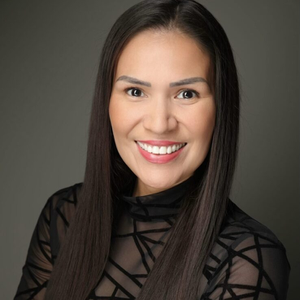
Shelley Young
Medical Student at Queen's University and IPAC Student DirectorShelley is a proud Mi’kmaq from Eskasoni First Nation (NS). She currently resides on the traditional lands of the Haudenosaunee and Anishinaabek in Kingston (ON) with her husband and two children as she studies at Queen’s School of Medicine.
Before Medicine, Shelley was always drawn to advocacy and helping field. Some of Shelley’s background includes working in pain research, as a clinical social worker, and community health director. Shelley helped spearhead an Aboriginal Children’s Pain Study that led to the Aboriginal Children’s Hurt and Healing Initiative (IWK); and she is currently part of a research team focused on improving food insecurity in Northern Remote regions of Canada.
When Shelley isn’t working or studying she enjoys an active lifestyle, and she often travels and dances Jingle on the powwow trail with her family.